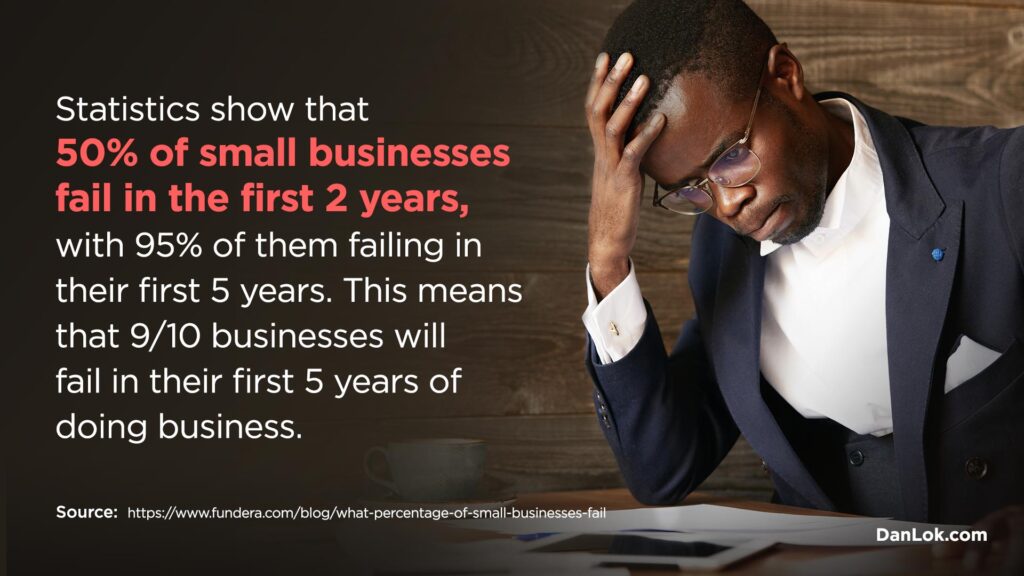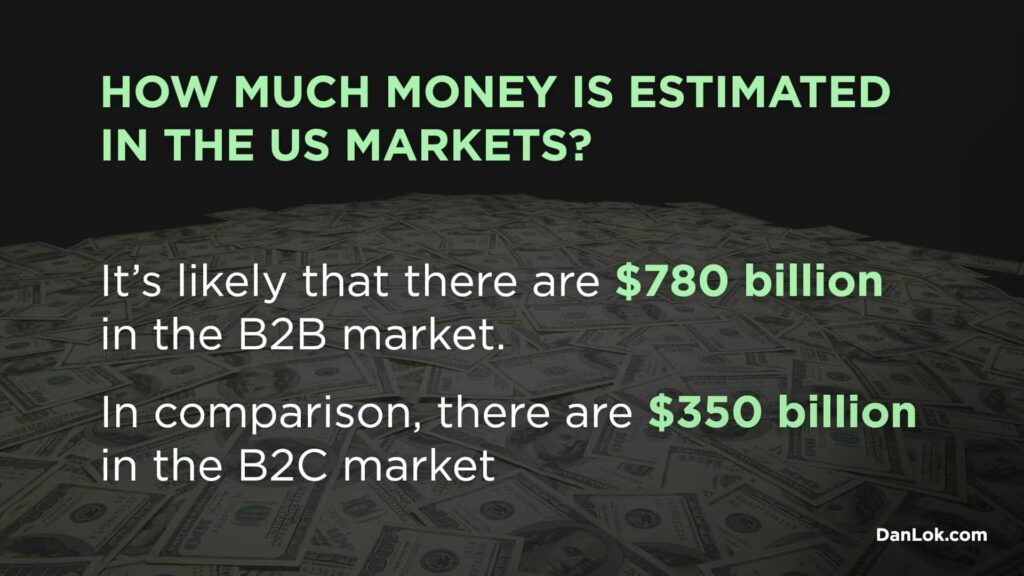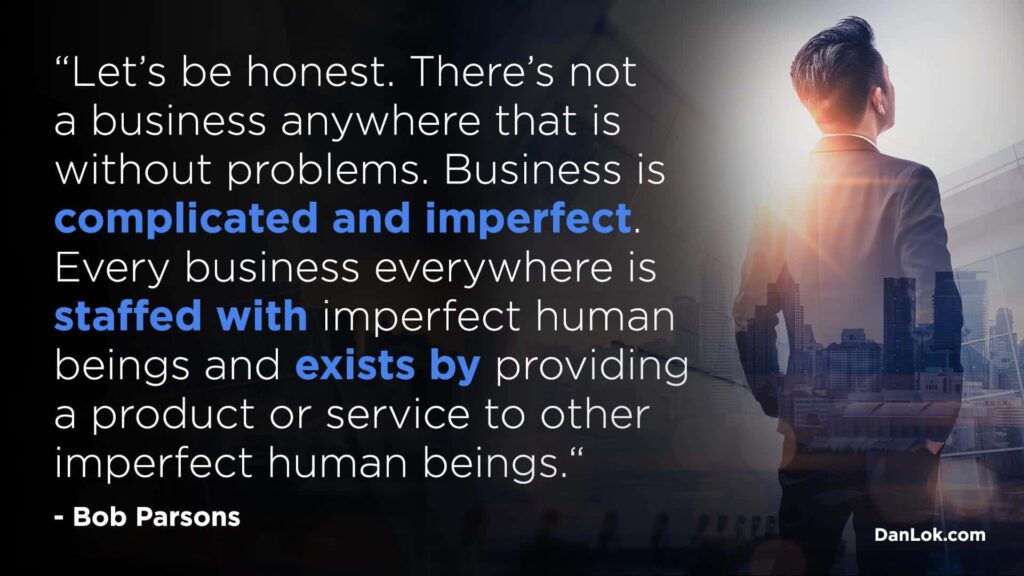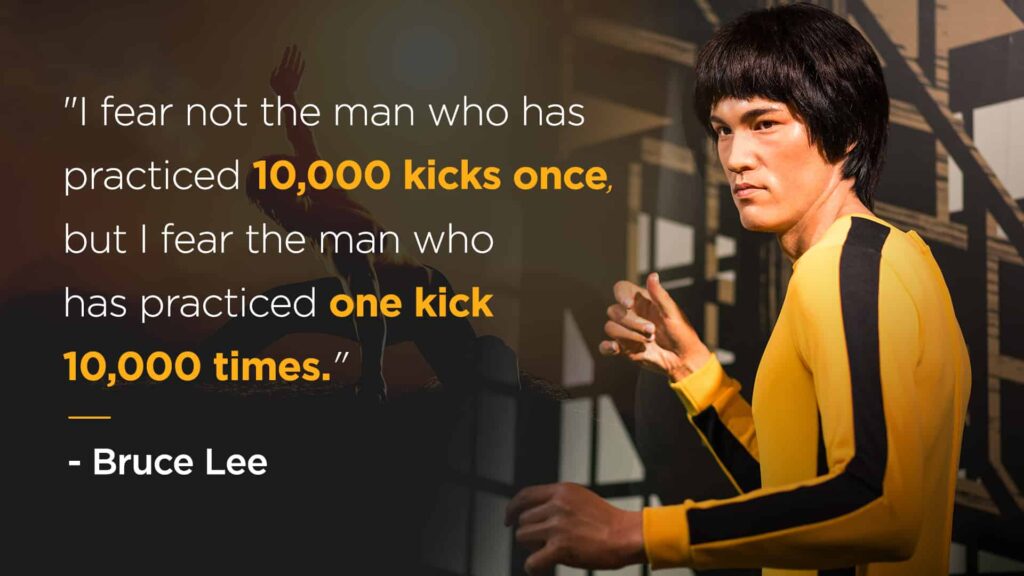Thinking about how to start a successful consulting business? You’re not alone. The consulting business industry has been growing for the past several years. In 2017, the global consulting market was forecasted at around 262 billion U.S. dollars. The number of management consultants in the U.S. reached 709,750 in 2019. But how do you start a successful consulting business that stands out from the crowd?
There’s a secret to going from zero to $100,000 to making a million dollars a year. Dan Lok shares these strategies with his students in the High Ticket Closer® Certification Program. In this program, Dan shares all of his lessons learned over the past twenty years. To help you start off in the right direction, we will share one of the most important secrets with you in this article.
Watch this video about successful coaching and consulting secrets.
Relationships, Not Transactions
When thinking about how to start a successful consulting business, you first have to be clear about what it actually takes. What do you think consulting is? You see, consulting is not about transactions and your sales of services. One thing far more important than selling a service is relationship management. Your relationship with the client and how you make them feel is as important as what you sell.
Dan Lok always tells his students – people buy because of what you sell, but they stay with you because of who you are. This means that you need to nurture and strengthen your relationships with clients. This is what distinguishes you from your competition. It’s all about how you made them feel. Often it has way less to do with the quality of your work and much more with the quality of the relationship you built.
If you base your relationship with the clients on the transaction only, you will have a hard time generating consistent income. Money exchanged for service should not be the only thing connecting you with your client. You have to make your clients feel good to make sure they return and recommend you to others. If you only exchange your service for money, how will they get to know you? How will they connect with you?

How to Connect
If you want to know how to start a successful consulting business, you must cultivate transformative relationships. What does that mean? It means that you’re not being seen as a commodity where the client leaves the money and you do the work. Having a transformative relationship means enhancing the business in some meaningful way.
People buy because of what you sell, and they stay because of who you are. -Dan Lok Click To Tweet
But what if you provide technical support and your relationship is mostly transactional? Well, let’s imagine that you help people set up their automated webinars in their funnels. You provide the service and help them with the webinars. All of your interactions are business-related and online or over the phone. But how do you know if the relationship is transactional or transformational?
The tricky part is that you can’t communicate this difference. You can’t ask your client if they experienced a transactional or a transformational relationship. But let’s say you do a good job, and they pay you because they’re satisfied with the service. It’s a pretty good transactional relationship. But what would make this relationship transformational?
Well, as we already said, it’s how you make the client feel that changes the relationship. And how do you affect your client’s feelings? Create an important positive change in their business. If you transform their business in some significant way, you will transform their life and make them feel good.
Transforming A Man Using A Suit
A transformational relationship starts from day one. The first step is figuring out how you view what you do. What does this mean? Well, let’s take a look at a custom suit business.
Let’s imagine a customer comes into your store to get a custom made suit. You take measurements, choose the fabric, and make a suit. This is a very transactional process. However, you could do the same amount of work and get a different result.
Observe your client. Does your client show confidence? Or is there a strong sense of low self-esteem? If a man comes in with low self-confidence and low self-esteem, imagine what a good suit could do for him. You measure him, understand his personality, find out what he does and who he really is. If you do this, you can help bring out his best qualities through your suit.
If you know your client, you can choose the right shade of colors that match his skin tone to give him confidence. You could find the best fit for his form that makes him look confident. Ask him what occasion is the suit for. Is it for a meeting? Paint a picture of a successful meeting for him, and help him see himself differently. Use your experience and expertise to show him an image of his success and confidence in a new suit.

Now, think about what a good suit that makes him feel good could do. Maybe it will help him get promoted in his company? His confidence changes his performance. Your suit could change that man’s life in many other ways, too.
Attract People You Resonate With
It’s the same suit as the one you just measured and made, but this time, you changed someone’s life. You did not just give him a suit – you gave him an opportunity.
Do you see the difference? You don’t want to just make a suit and take the money. What you want to do is change your client’s life or business in some way. If you do this, you will also get a very different type of client. You will attract the people with whom you can resonate.
When thinking about how to start a successful consulting business, think about how you position yourself: are you a commodity or someone who can change a life and transform a business?
Changing Your Mindset
Let’s go back to setting up a webinar for a moment. If you’re setting it up for your client, it is likely transactional. But say that you don’t just set up a webinar. By making it automated, you are saving the client’s time. By saving time and helping the client to make more money, you also give them more time to spend with family or doing something else. This is likely life-changing.
It’s the same if you’re a realtor. You could sell a client a two-bedroom condo near parks and a school and hand over the keys to the new owner. Or you can sell a home – a place where the new owner can watch their kids grow up. It’s a different kind of responsibility to your client.
You see, you don’t even have to do anything different to create a transformational relationship. Your service can stay the same. But your attitude is different. You change your mindset and your belief about your own work.
When you’re still figuring out how to start a successful consulting business, your mindset is the key. In his High Ticket Closer® Certification Program Dan Lok dedicates the first few classes exclusively to mindset. This is because he knows that a person without the right mindset always stays a salesperson and never evolves into a powerful closer. If you don’t have the right mindset, you will not create the success you desire.
How Do You View What You Do?

So what you really need to do is to take a closer look at how you view your own work. How do you feel about what you do? Are you bored with making one suit after the other because it doesn’t make a difference? You might be tired of showing houses to endless potential customers. You could also just be bored with your daily routine and the type of client you work with.
If you feel uninspired, you are most likely forming exclusively transactional relationships. But when you have a different mindset, your client will sense the difference. As a service-based business, you want a long-term relationship, and your clients will sense that. They will feel that you care, and it will shift their attitude towards your business as well.
If you are a lawyer, for example, you’re aware that you don’t just offer trademarking services while filling out a bunch of paperwork. You’re actually protecting the client’s brand. As a realtor, you’re not just helping a client buy a house, you’re helping them find a future for their family. This is the mindset we talk about.
Painting The Picture
So as a transformational consultant, you demonstrate to your client that you care about them more than about money. Your focus is not profit alone. You’re interested in a lifelong relationship. You are interested in positive transformation and making a difference.
As a transformational consultant, you want to impart knowledge to your client, so they get the results they desire. This demonstrates that you care while being unattached to the transactional outcome of your relationship. This will also allow you to set healthy boundaries and not to take it personally if the client doesn’t respond as you imagined.

But how do you actually do this? One simple way that Dan teaches his closers to do this is by painting a picture. This would be the picture of improvements in their business and life after a certain solution is implemented. To figure out what picture to paint, you have to talk less and listen more. Listen to their needs and pain points. Help them imagine what their business will be like if you do something for them.
As you do this, make sure you distinguish between caring about your client’s progress and being attached to the outcome. There are many factors that contribute to their success or failure, and you cannot control that.
Many people can learn from the same mentor, yet each person will have different results. Everyone progresses at different speeds and different levels even if they are learning the same lessons from the same person.
Final Thoughts On How To Start a Successful Consulting Business
It’s easy to charge money for a product or service. That’s what most people do. But to make a high income from consulting, you need to build relationships and offer transformations.
Your client won’t have a transformation if you measure him and then bill him for the custom suit you just made. But if you take the time to make a suit that changes his confidence and changes his life, then you’ve opened the door to a lifelong relationship. You didn’t just create a suit, you created a feeling.
Start by changing your mindset. Show that you care about your client more than the product or service you are selling. When you can offer a transformation, the ripple effect will go beyond your service – it will impact your client’s personal and professional life.
To learn more about starting a successful consulting business, you should consider Dan Lok’s High Ticket Closer® Certification Program. This program is for people interested in evolving into transformational closers and leaders in their field. If you’re serious about creating change in your client’s lives and starting a successful business of your own, click here now.



































